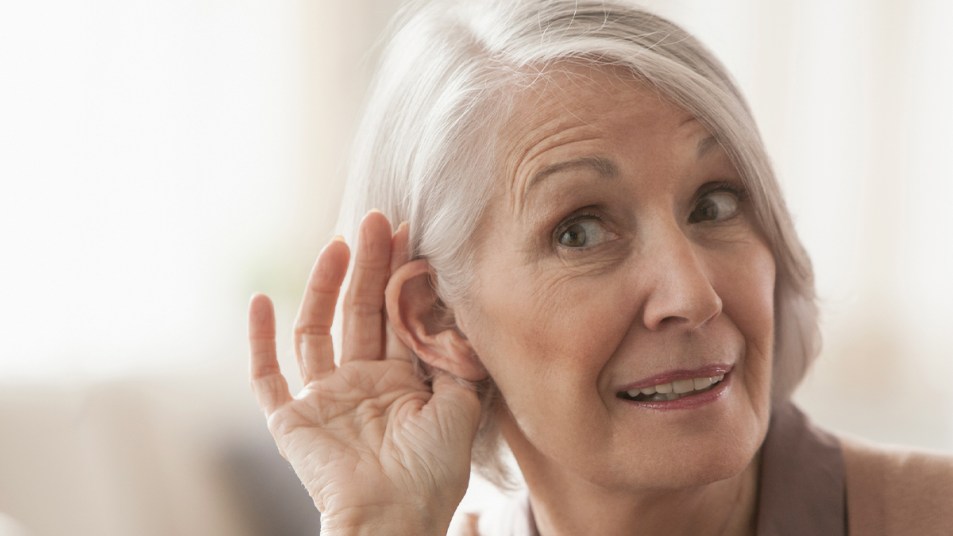Dealing With Hearing Loss: Causes, Prevention, and Treatment Tips

For many of us, hearing loss is just part of the process of getting older. But how do you know if it’s something you’re experiencing and what exactly can you do about it? We spoke to audiologist Farah Kiani for tips on how to deal with hearing loss.
What are the signs and symptoms of hearing loss?
Some of the early stages of hearing loss include muffling of speech and other sounds, difficulty understanding words, frequently asking people to repeat themselves and turning up the volume of the TV or radio. If you’ve noticed any of these, it’s important to get your hearing tested.
In the first instance, you can get your hearing checked by taking an online hearing test at Starkey.com, which will give you an indication of the level of your hearing loss. If your results show you have some degree of hearing loss, the next step would be to arrange an appointment with a hearing specialist who will be able to conduct an assessment to determine how well you hear.
Sudden Hearing Loss
Hearing loss can sometimes happen suddenly. For example, sudden hearing loss in one ear may be due to a build-up of earwax, an ear infection, a perforated eardrum or Meniere’s disease. Sudden hearing loss in both ears may be due to damage from a very loud noise, or taking certain medicines that can affect hearing. If you’re concerned about your hearing, speak to your doctor or a hearing specialist.
Is hearing loss in one ear more common than in both?
Normal age-related hearing loss — presbycusis — typically affects both ears equally, so if you notice your hearing loss is more severe in one ear, it might be something else, such as an ear infection, earwax, or more seriously, sudden single-sided deafness, which is considered a medical emergency and should be checked out right away.
What are the causes of hearing loss?
The most common type of hearing loss is sensorineural hearing loss, or age-related hearing loss. 40 percent of people over age 50 will experience some form of hearing loss, rising to 70 percent in those over aged 70. This type of hearing loss occurs when the inner ear or the actual nerve itself becomes damaged. This loss generally occurs when some of the hair cells within the cochlea are damaged.
Conductive hearing loss is also common, when sounds are unable to pass from your outer ear to your inner ear, often because of a blockage such as earwax, glue ear, or a build-up of fluid from an ear infection.
When should I get medical help?
A lot of people believe hearing loss is something you have to put up with as you get older, but that shouldn’t be the case. If you start to experience changes in your hearing, visit your doctor or a hearing specialist as soon as possible. An audiologist will be able to conduct a full audiometric hearing assessment to identify the extent of any loss.
What are the treatments for hearing loss?
Hearing loss caused by earwax build up can be treated using eardrops. Irrigation (flushing the wax out using water) and microsuction (using a vacuum to suck the wax out). This needs to be conducted by a hearing specialist following a full inspection of the ear.
Other types of hearing loss – such as gradual hearing loss that can happen as you get older – may be permanent. However, hearing aids can help make sounds louder and clearer.
It is important to remember that the success of a particular hearing solution can vary significantly from one person to the next, due to factors such as the cause and severity of the loss, as well as lifestyle, limitations to dexterity, and personal choice.
There’s a wide range of hearing instruments available in terms of shapes, sizes, and colors. Treatment for hearing loss can therefore be highly personalized to the individual to ensure that they hear the best they can and a hearing aid specialist will be able to deliver advice following a full hearing assessment.
Can hearing loss be prevented?
Protecting what you have is key — you can protect your ears by following the 60/60 rule — listening with headphones at no more than 60 percent volume for no more than 60 minutes a day. If you’re attending loud events, wear earplugs, and give your ears time to recover afterwards.
Don’t use cotton swabs, the ears are self-cleaning organs and wax stops dust and other harmful particles from entering the canal. Plus, inserting anything in your ear canals risk damaging sensitive organs like your eardrum.
Lastly, treat your ears as you would your teeth or eyes, and get regular hearing tests.
This article originally appeared on our sister site, Yours.












